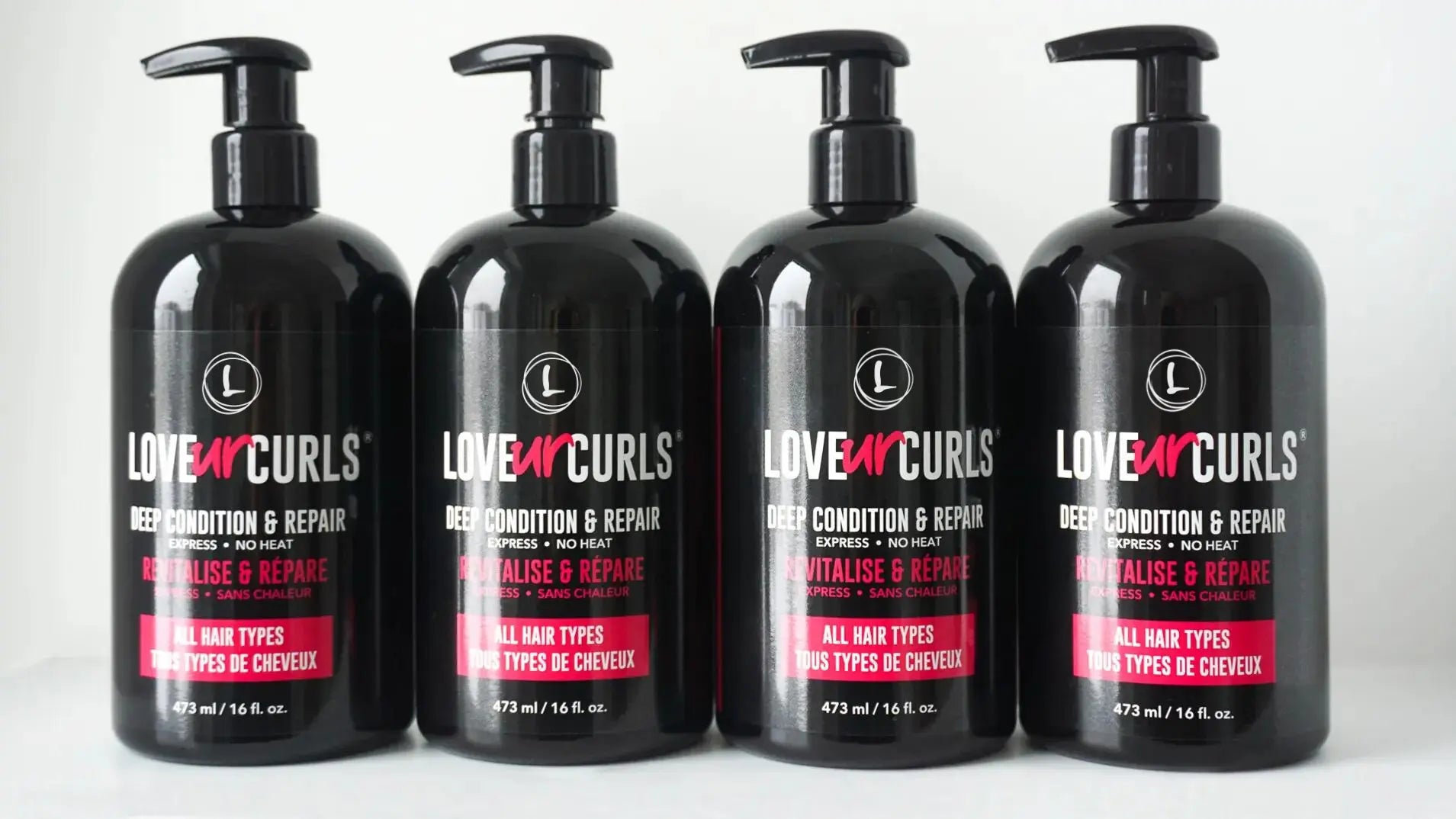What is breakage?
Breakage sucks. It stunts your growth, invites unwanted frizz, and makes your hair uneven and difficult to manage, but what is it exactly?
Breakage describes when hair breaks off at any point along the hair shaft. It happens to every hair type but is especially common with curls because of their unique shape and structure.
Breakage vs SheddingIt's important to distinguish breakage from shedding. Shedding is a natural process where hair falls out from the root, while breakage occurs along the hair shaft. Shedding is normal and healthy, but excessive shedding could be a sign of a health issue or improper care.
6 Signs of Breakage: Excessive split ends and uneven lengthWhen hair breaks off it usually leave signs of stress on the end left behind. This often looks like split or frayed ends and uneven lengths between your broken ends and the ones that are still intact.
Lots of fallout while styling/detanglingBroken hair in your brush or on your bathroom counter. If you're seeing more hair than usual take a closer look. If they're shorter than the length of your hair it's likely a sign of breakage rather than typical shedding.
Easily knots up + difficulty detanglingHealthy hair should be easy to brush, so if you’re finding yours knottier than usual, it could be a sign of damage.
Difficulty defining curls + unusual frizz & flyawaysWe encourage you to embrace your natural hair texture, if it looks or feels frizzier than normal it could be a sign of hair damage.
Lack of bounceIf your curls don't immediately bounce back when stretched/pulled, that's a sure-fire sign of weak, brittle curls. Decreased elasticity occurs when your curls are damaged and in need of moisture.
What causes breakage in curly hair?
There are several reasons why curly hair is prone to breakage. Here are a few of the most common causes:
Over-manipulationCurly hair is fragile and can easily break if it's handled too roughly. Brushing, combing, and styling can all cause breakage if you're not careful. Try to avoid over-manipulating your hair, and use gentle tools like wide-tooth combs and detangling brushes.
DrynessCurly hair tends to be drier than straight hair because the natural oils from the scalp have a harder time traveling down the hair shaft. When hair is dry, it's more prone to breakage. Make sure you're moisturizing your hair regularly with a leave-in conditioner or hair oil.
Heat damageUsing hot tools like flat irons and curling irons can cause heat damage to curly hair. Heat can dry out the hair and make it more prone to breakage. If you must use hot tools, use a heat protectant spray and keep the temperature low.
Chemical damageChemical treatments like relaxers and perms can weaken the hair and make it more prone to breakage. If you're going to get a chemical treatment, make sure you go to a professional who knows how to work with curly hair.
How to Prevent and Treat Breakage in Curly Hair
Now that you know what causes breakage in curly hair, let's talk about how to prevent and treat it.
Be gentleHandle your hair gently and avoid over-manipulating it. Use gentle tools like wide-tooth combs and detangling brushes, and avoid using elastic bands or tight hairstyles that can pull on your hair.
MoisturizeCurly hair needs moisture to stay healthy and strong. Use moisturizing products hair oil to keep your hair moisturized, and deep condition regularly.
Limit heat and chemical damage
Try to limit your use of hot tools and chemical treatments (like bleaching) as much as possible. If you do use them, make sure you're using a heat protectant spray and going to a professional who knows how to work with curly hair.
Extra ProtectionGive your hair a break with low manipulation or protective styles.
 Trim & Treatment
Trim & Treatment
Regular trims can help prevent split ends, which can lead to breakage. You can also use our Split End Mender to help moisturize + strengthen dry brittle hair, seal split ends, prevent breakage, and retain more length in between salon visits.
Protect your hair at night
Use a silk or satin pillowcase or wrap your hair in a silk or satin scarf at night to prevent breakage from friction.
--
At the end of the day, breakage can't be undone but it can be prevented and treated with the right care.
Be gentle with your hair, moisturize regularly, limit heat and chemical treatments, trim regularly, and protect your hair at night. With these tips, you can keep your curly hair healthy and strong.









